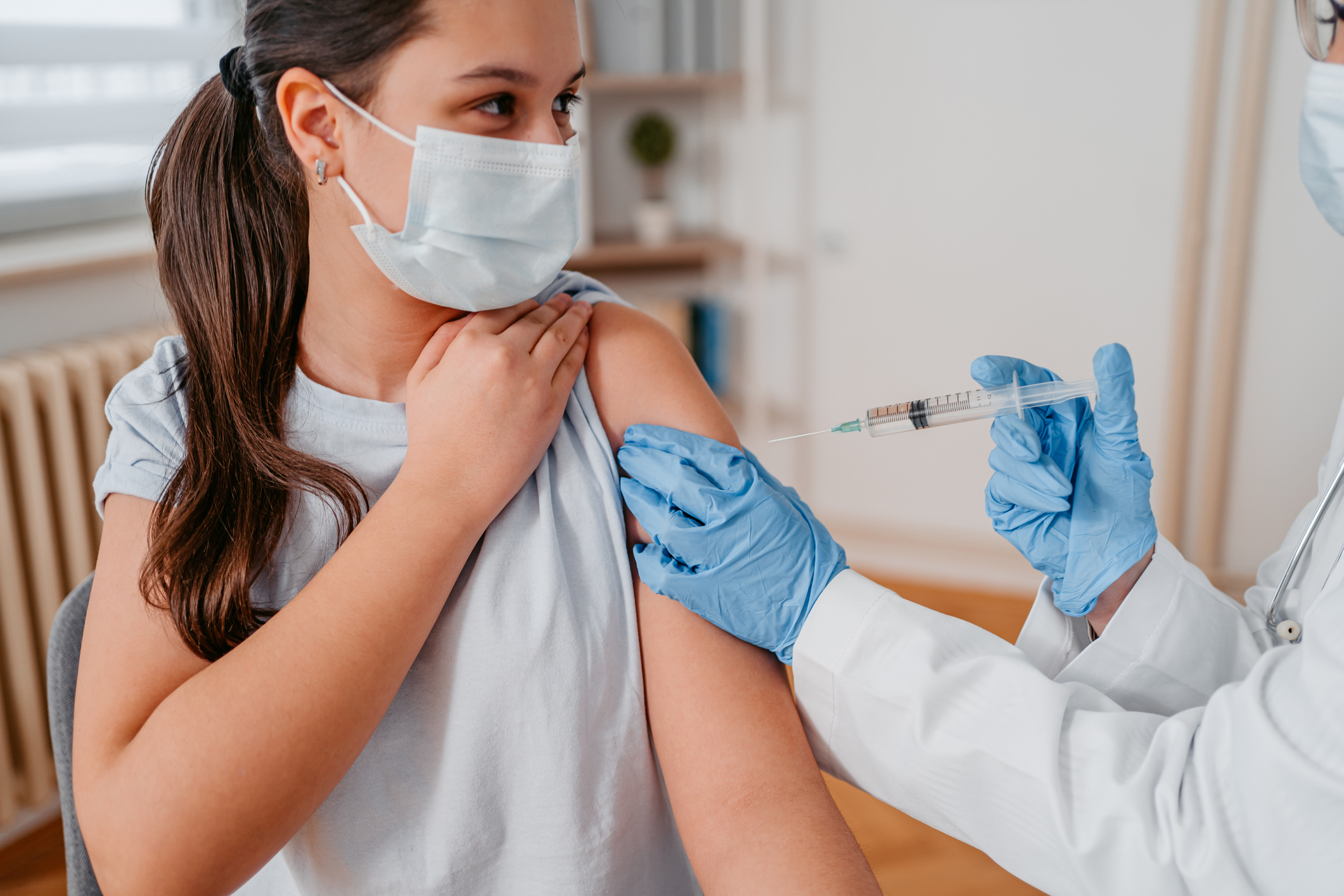
We tell our kids to put on sunscreen and not to smoke because we don’t want them at risk for skin and lung cancer later in life. Like practicing sun safety and avoiding tobacco, getting the human papillomavirus (HPV) vaccine is cancer prevention.
The American Academy of Pediatrics (AAP) and the Centers for Disease Control and Prevention (CDC) recommend all children — including both boys and girls — between ages 9 and 12 get the HPV vaccine. But you may wonder, “Why vaccinate at this age?” or “Is the vaccine safe?” Three Summit Health providers help with your questions.
What is HPV? What cancers can it cause?
HPV, or human papillomavirus, is a common virus spread through close skin-to-skin contact and sex. According to the CDC, the virus infects about 13 million Americans every year. Most HPV infections clear up on their own. But some infections — usually without symptoms — can linger and become certain cancers.
There are more than 100 types of HPV, including high-risk strains that can cause cancers of the:
- Cervix, vagina, and vulva in women
- Penis in men
- Anus in women and men
- Throat in women and men (also called oropharyngeal cancer)
HPV causes about 37,000 new cancer cases in the U.S. each year. Of these cases, cervical cancer is the most common among women, while throat cancer is the most common among men.
Why is the HPV vaccine recommended as early as age 9?
Summit Health pediatricians Marnie Dardanello, MD, and Carolyn Birbiglia, MD, say getting vaccinated before becoming sexually active is the best prevention.
Almost all unvaccinated sexually active people will become infected with HPV at some point, according to the CDC. And most won’t know they have the virus. “HPV is a stealth virus we want to prevent before any exposure,” says Dr. Dardanello.
“My focus is on the cancer-causing component of HPV. We’re looking ahead to the future and want to prevent it along the line,” says Dr. Birbiglia. The CDC estimates that vaccination at ages 11 to 12 could prevent over 90% of cancers caused by HPV.
Additional reasons for vaccinating at this age include:
- Strong immune response. Clinical trial data show that antibody levels in girls and boys who receive the HPV vaccine before age 15 are two times higher than in those who get the vaccine later. These findings support the recommendation that children under 15 only need two vaccine doses, while people over 15 need three.
- Long-lasting protection. Studies of people who received the HPV vaccine show protection remained high up to 12 years post-vaccination, with statistical models estimating a longer immune response. And while antibody levels plateau about 18 months post-vaccination, levels remain higher than that of natural immunity.
- Vaccine schedule efficiency. Starting the HPV vaccine series earlier allows children to get both doses before or when other vaccines are due, including Tdap (tetanus, diphtheria, and pertussis) and meningococcal disease. Drs. Dardanello and Birbiglia say a head start helps families get questions answered and plan for routine care.
How does the HPV vaccine work? Is it effective?
The HPV vaccine, known by the brand name Gardasil 9, protects against nine types of HPV:
- Two types that cause at least 70% of cervical cancers
- Two types that cause 90% of genital warts cases
- Five types associated with cervical, vaginal, vulvar, penile, anal, and throat cancers
Research shows the vaccine is effective. HPV infections in girls ages 14 to 19 decreased by 86% in the 10 years after 2006, when the vaccine was first recommended in the U.S. Meanwhile, infections among women in their early 20s decreased by 71%. In addition, cases of genital warts among teens and young adults are declining, as are cervical precancers.
Is the HPV vaccine safe?
“The HPV vaccine is a very safe, well-studied vaccine that’s been available for more than 15 years,” says Christine Masterson, MD, chief of women and children’s services and dermatology at Summit Health. More than 135 million doses have been distributed in the U.S. to date.
Dr. Masterson points to multiple studies that report a good safety profile for the vaccine. Some of these studies debunk common vaccine concerns and myths, such as post-vaccination death and links to autoimmune, neurological, and reproductive problems.
Given the vaccine’s safety record and effectiveness, organizations that echo the AAP and CDC’s recommendations include the American Cancer Society, the American Academy of Family Physicians, and the American College of Obstetricians and Gynecologists.
Should adults get the HPV vaccine too?
The HPV vaccine is approved for everyone ages 9 to 45. If you have not received the HPV vaccine series as a child, getting vaccinated can still reduce your risk of HPV-related cancers. Talk to your provider about whether vaccination is right for you if you are 45 years of age or younger.
“As a gynecologist, I can say that cervical cancer and abnormal Pap smears can lead to so many things,” says Dr. Masterson. She notes treatment for cervical precancers and cancers, including abnormal cell removal, hysterectomy, chemotherapy, and radiation, has risks and implications for pregnancy.
Still, if you’re a vaccinated woman age 21 or older, you should get regular Pap smears to screen for cervical cancer. Currently, there is no approved HPV test for men.
Because HPV affects men and women, Dr. Masterson encourages both to get vaccinated. “HPV is a largely silent virus,” she says. “The best step is to prevent it, and that’s what the vaccine can do.”
